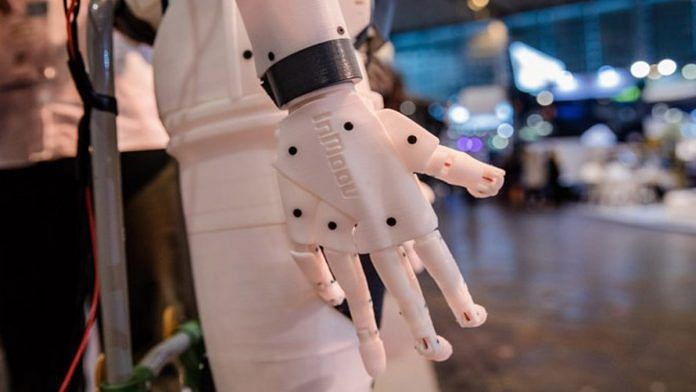
New Delhi: The World Economic Forum has brought together 37 initiatives as part of its global action plan to promote and expand the scope of internet of things (IoT) — a growing suite of internet-enabled devices and smart technologies.
The plan will work on five critical areas of the sector — building transparency and trust into IoT technologies, ensuring privacy and security, equal access, incentivising the use of IoT to solve humankind’s biggest challenges and creating consensus on global issues.
This will be a multi-year programme and is spread across six continents.
According to the plan, Brazil, Colombia, Kazakhstan, South Africa and Turkey will work together to help build the technological capacity of small and medium sized enterprises.
Meanwhile, 36 cities across the globe, such as Buenos Aires, Istanbul, London, Mexico city and Medellin, will create a global policy ‘road map’ for the ethical use of technologies.
These will be developed through year-long activities that commenced Thursday.
“As the internet of things becomes a part of our daily lives, it is essential that we build upon the last three decades of learning from the World Wide Web, ensuring that these technologies create a digital future that is safe and empowering for everyone,” said Adrian Lovett, President and Chief Executive Officer of the World Wide Web Foundation and Co-Chair of WEF’s Global IoT Council.
Lovett added: “Governments, companies and citizens need to work together in innovative public-private partnerships to create this digital future.”
Covid and technology
In 2020, with the Covid-19 pandemic, technology has taken centre stage in various sectors, especially public health.
According to a WEF report, with countries preparing themselves for a vaccine, internet-enabled devices will play a “central role” in how to track and deliver temperature sensitive vaccines.
The report noted that the pandemic has been responsible for “accelerating” global trends such as remote working, tele-health, automation, distance learning etc.
However, experts note that governance across the world lags far behind the pace of technological change.
Based on surveys and interviews with over 400 experts, the WEF report noted that the ability of these devices to fairly benefit all and protect society was the largest “governance gap” facing the world today.
Stella Ndabeni-Abrahams, Minister of Communications and Digital Technologies of South Africa and Co-Chair of WEF’s Global IoT Council, said, “We must come together and act now to ensure these technologies become a force for shared societal benefit, as opposed to exacerbating existing inequalities.”
Subscribe to our channels on YouTube & Telegram
Why news media is in crisis & How you can fix it
India needs free, fair, non-hyphenated and questioning journalism even more as it faces multiple crises.
But the news media is in a crisis of its own. There have been brutal layoffs and pay-cuts. The best of journalism is shrinking, yielding to crude prime-time spectacle.
ThePrint has the finest young reporters, columnists and editors working for it. Sustaining journalism of this quality needs smart and thinking people like you to pay for it. Whether you live in India or overseas, you can do it here.